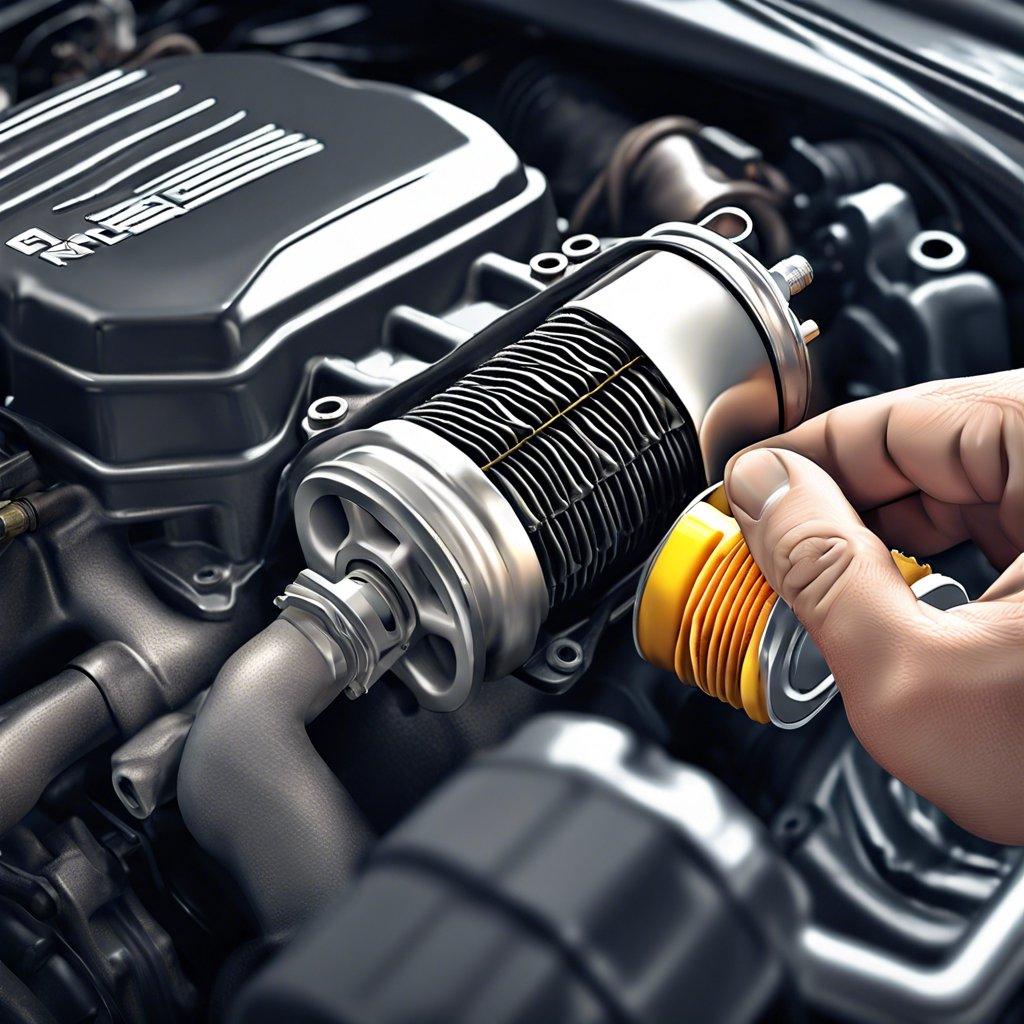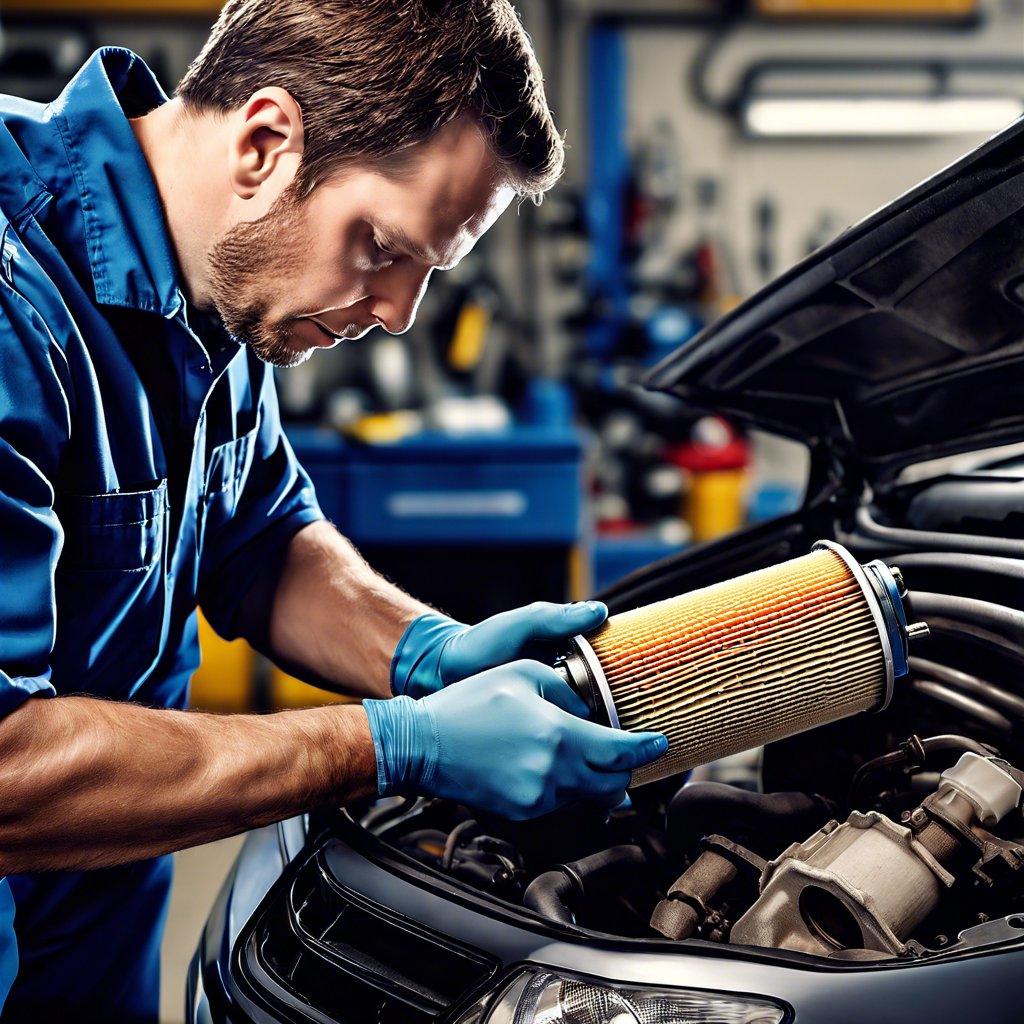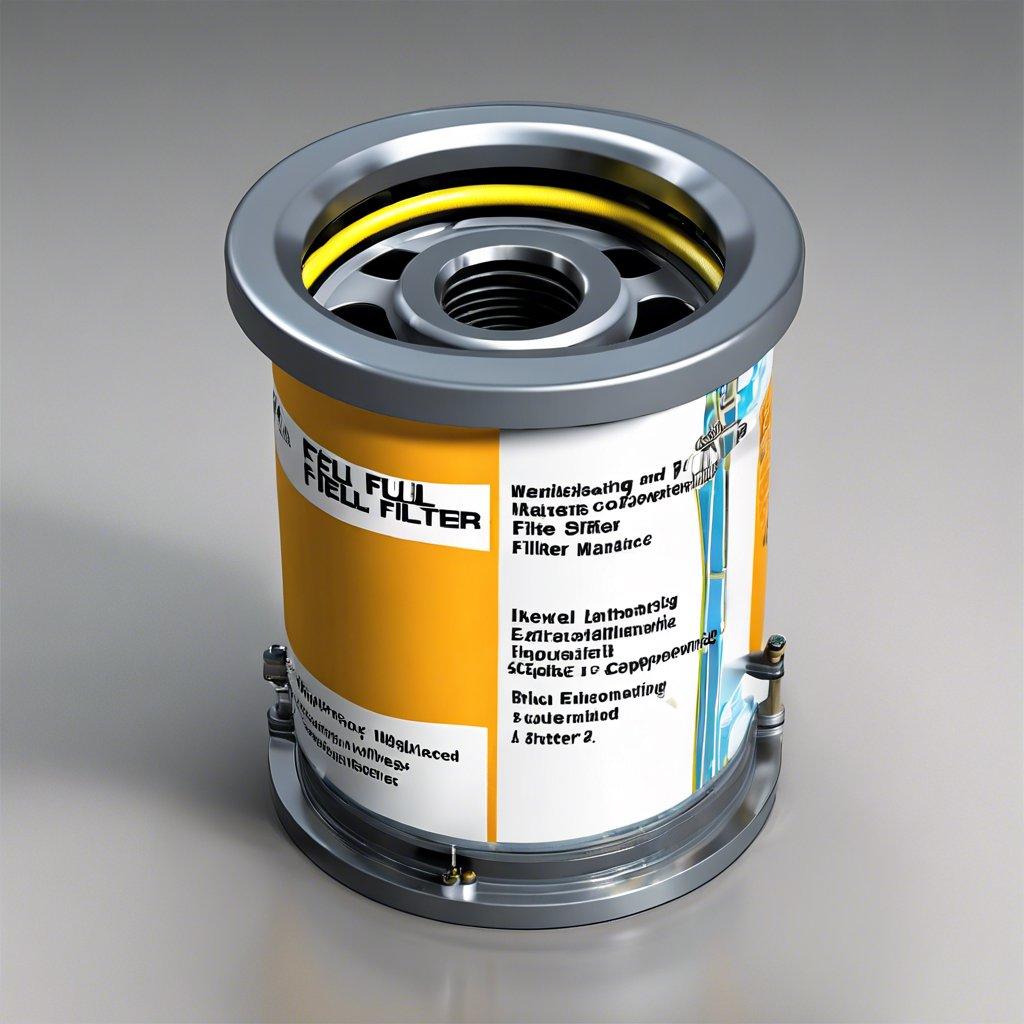Fuel Filter Maintenance: How Often Should It Be Changed?
Optimal Fuel Filter Replacement Intervals: Maximizing Engine Performance

Maintaining the health of your vehicle’s fuel system is crucial for optimal engine performance, fuel efficiency, and longevity. At the heart of this system lies the fuel filter, a critical component responsible for removing impurities and contaminants from the fuel before it reaches the engine. Determining the optimal fuel filter replacement interval is essential to ensure your engine is operating at its best.
Understanding the Role of the Fuel Filter
The fuel filter plays a vital role in protecting your engine from potential damage caused by dirt, rust, and other foreign particles present in the fuel. As the fuel passes through the filter, these impurities are trapped, preventing them from reaching the sensitive components of the fuel system, such as the fuel injectors and the fuel pump.
Factors Influencing Fuel Filter Replacement Intervals
The recommended fuel filter replacement interval can vary depending on several factors, including:
- Driving Conditions: Vehicles operated in dusty, off-road, or high-particulate environments may require more frequent filter changes to maintain optimal performance.
- Fuel Quality: Lower-quality fuels with higher levels of contaminants may necessitate more frequent filter replacements.
- Vehicle Age and Mileage: As vehicles accumulate mileage, the fuel filter may become clogged more quickly, requiring more frequent replacement.
Recommended Fuel Filter Replacement Intervals
While manufacturer recommendations should always be followed, a general guideline for fuel filter replacement intervals is:
| Driving Conditions | Replacement Interval |
|---|---|
| Normal Driving | Every 30,000 to 50,000 miles |
| Severe Driving (Dusty, Off-Road, High Mileage) | Every 15,000 to 30,000 miles |
Maintaining Optimal Engine Performance
By adhering to the recommended fuel filter replacement intervals, you can help ensure your engine continues to operate at its best, maximizing power, fuel efficiency, and overall longevity. Regular filter changes can also help prevent costly repairs down the line, making it a wise investment in the long-term health of your vehicle.
Proper fuel filter maintenance is a crucial aspect of vehicle care, directly impacting engine performance and fuel system integrity. By understanding the importance of the fuel filter and following the optimal replacement intervals, you can keep your engine running at its peak, ensuring a smooth and efficient driving experience.
Fuel Filter Maintenance: A Critical Component for Efficient Engine Operation
Importance of Fuel Filter Maintenance
The fuel filter is a vital component in the engine’s fuel system, responsible for removing impurities and contaminants from the fuel before it reaches the engine. Proper maintenance of the fuel filter is crucial for ensuring efficient engine operation, prolonging engine life, and preventing costly repairs.
Determining the Fuel Filter Change Interval
The recommended fuel filter change interval can vary depending on factors such as the vehicle’s make, model, and driving conditions. Generally, it is advisable to refer to the manufacturer’s recommendations or consult a qualified mechanic. However, as a general guideline:
- Gasoline-powered vehicles: The fuel filter should be changed every 30,000 to 50,000 miles or as per the manufacturer’s recommendations.
- Diesel-powered vehicles: The fuel filter should be changed more frequently, typically every 10,000 to 15,000 miles or as per the manufacturer’s recommendations.
Signs of a Clogged Fuel Filter
It is important to be aware of the signs that indicate a clogged or failing fuel filter, including:
- Reduced engine performance: A clogged fuel filter can restrict fuel flow, leading to a loss of power and decreased acceleration.
- Difficulty starting the engine: A clogged fuel filter can make it challenging to start the engine, especially in cold weather conditions.
- Rough idling or stalling: A clogged fuel filter can cause the engine to run rough or stall intermittently.
- Decreased fuel efficiency: A clogged fuel filter can reduce the engine’s ability to efficiently utilize fuel, resulting in lower fuel economy.
Fuel Filter Replacement Procedure
Replacing the fuel filter is a relatively straightforward task that can be performed by a qualified mechanic or a DIY-savvy individual. The process typically involves the following steps:
- Locate the fuel filter, which is usually accessible and easy to identify.
- Disconnect the fuel lines from the filter, ensuring to avoid spilling any fuel.
- Remove the old filter and replace it with a new, high-quality filter that meets the manufacturer’s specifications.
- Reconnect the fuel lines and ensure a tight seal to prevent any leaks.
- Start the engine and check for any fuel leaks or other issues.
Proper fuel filter maintenance is a critical component of engine health and efficient operation. By following the manufacturer’s recommendations and being aware of the signs of a clogged filter, you can ensure your vehicle’s engine continues to perform at its best, reducing the risk of costly repairs and downtime.
Extending Engine Life: The Importance of Regular Fuel Filter Changes
As an engineering or technology professional, you understand the critical role that fuel filter maintenance plays in preserving the longevity and performance of your engines. Regularly changing the fuel filter is a simple yet essential task that can significantly extend the lifespan of your machinery and ensure optimal engine operation.
The Role of the Fuel Filter
The fuel filter is responsible for removing impurities and contaminants from the fuel before it reaches the engine. Over time, these filters can become clogged with debris, reducing the flow of fuel and compromising the engine’s efficiency. Neglecting fuel filter maintenance can lead to a host of problems, including decreased fuel economy, reduced power output, and even complete engine failure.
Recommended Fuel Filter Change Intervals
The recommended frequency for changing the fuel filter can vary depending on the make and model of your equipment, as well as the operating conditions and fuel quality. As a general guideline, most manufacturers recommend changing the fuel filter every 12,000 to 24,000 miles (or 12 to 24 months) for passenger vehicles, and every 500 to 1,000 hours of operation for heavy-duty equipment.
The Benefits of Regular Fuel Filter Changes
- Improved Fuel Efficiency: A clean fuel filter allows for unobstructed fuel flow, resulting in better combustion and increased fuel efficiency.
- Enhanced Engine Performance: Removing contaminants from the fuel helps maintain optimal engine performance, delivering consistent power and acceleration.
- Extended Engine Life: Protecting the engine from harmful debris and impurities can significantly extend its lifespan, reducing the need for costly repairs or replacements.
| Equipment Type | Recommended Fuel Filter Change Interval |
|---|---|
| Passenger Vehicles | 12,000 to 24,000 miles (12 to 24 months) |
| Heavy-Duty Equipment | 500 to 1,000 hours of operation |
Regularly changing the fuel filter is a simple yet essential maintenance task that can have a significant impact on the longevity and performance of your engines. By adhering to the recommended change intervals, you can ensure optimal fuel flow, enhanced engine performance, and extended engine life, ultimately saving you time and money in the long run.
Fuel Filter Replacement: A Proactive Approach to Maintaining Optimal Engine Health
As an engineering or technology professional, you understand the importance of maintaining optimal engine health for your vehicles or equipment. One crucial aspect of this maintenance is the regular replacement of the fuel filter, a often overlooked but critical component in ensuring the smooth and efficient operation of your engine.
The fuel filter plays a vital role in removing impurities and contaminants from the fuel before it reaches the engine. Over time, these filters can become clogged with debris, restricting the flow of fuel and causing a range of issues, including reduced engine performance, decreased fuel efficiency, and even engine damage.
Determining the Optimal Fuel Filter Replacement Interval
The recommended frequency for fuel filter replacement can vary depending on factors such as the age and mileage of the vehicle, the driving conditions, and the quality of the fuel being used. As a general guideline, most manufacturers suggest replacing the fuel filter every 30,000 to 50,000 miles or every 12 to 24 months, whichever comes first.
Benefits of Proactive Fuel Filter Replacement
- Improved Engine Performance: A clean fuel filter ensures that the engine receives the proper amount of fuel, leading to better acceleration, responsiveness, and overall performance.
- Enhanced Fuel Efficiency: A clogged fuel filter can restrict fuel flow, causing the engine to work harder and consume more fuel. Replacing the filter can help improve fuel economy.
- Reduced Risk of Engine Damage: Contaminants in the fuel can cause wear and tear on critical engine components, such as the fuel injectors and the fuel pump. Proactive fuel filter replacement can help prevent these costly repairs.
| Fuel Filter Replacement Interval | Recommendation |
|---|---|
| Mileage-based | Every 30,000 to 50,000 miles |
| Time-based | Every 12 to 24 months |
By adopting a proactive approach to fuel filter replacement, engineering and technology professionals can ensure the optimal performance and longevity of their engines, ultimately contributing to the overall reliability and efficiency of their vehicles or equipment.




Post Comment